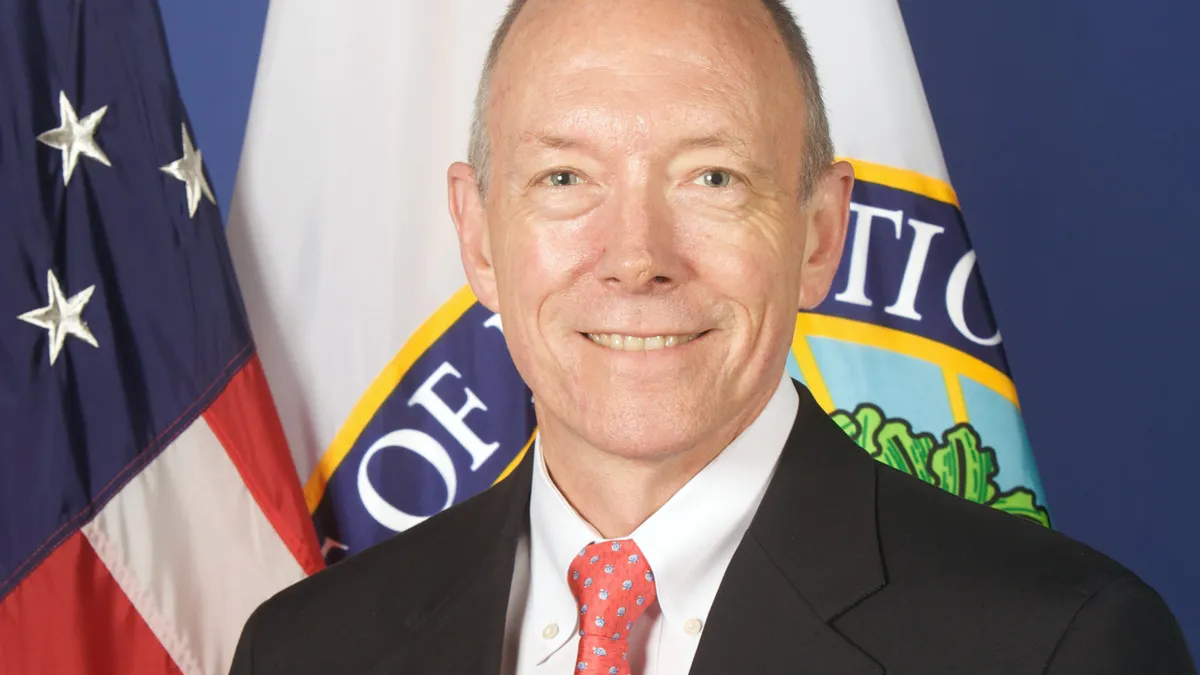If the United States wants to reclaim its place as the country with the greatest portion of adults with postsecondary degrees, greater attention must be paid to issues around equity. A dozen other countries now have a more educated populace than the United States, not because the U.S. is graduating fewer people, but because other countries are increasing their pace, pushing more of their population through postsecondary programs.
At the Education Writers Association meeting in Boston this week, U.S. Under Secretary of Education Ted Mitchell emphasized the need for quality of education coupled with consideration of equity and access.
“To talk about quality without talking about equity and access is simply foolish if what we’re looking for is a higher education system that can continually propel the American society and American economy forward,” Mitchell said.
Mitchell pointed to the for-profit sector, where he said too many schools have opened up access without maintaining quality. At the nation’s failing career colleges, traditionally underrepresented students have ample opportunity to go to college, but little guarantee their degrees will be respected by employers. And in disproportionate numbers, these students take out loans for programs they don’t finish, accruing debt but not obtaining a degree.
Mitchell does not oppose all nontraditional programs. In fact, he demanded innovative approaches to teaching the college-going population, the majority of which are now deemed “nontraditional.”
The “new normal” student is not attending college straight from high school. He or she is returning from military service or after working for a few years. These students have caregiving responsibilities for children and maybe even their parents. While some selective schools have announced commitments to holding spots for underrepresented students, Mitchell said that is not going to get the country to where it needs to be, in terms of degree attainment.
“We’re going to do that by changing the nature of delivery in ways that accommodate the new normal student,” Mitchell said.
While massive open online courses launched to great fanfare among the education community, they failed to meet high expectations for breaking down barriers to higher education. Mitchell credits MOOC providers for stepping back and redesigning their offerings. Udacity, Coursera and edX all look different now than they did at launch, and all three continue to find their niches in the new online world. An experimental sites program has allowed coding bootcamps to partner with accredited colleges to connect their intensive training with opportunities for federal financial aid.
The spirit of innovation and redesign is the key, Mitchell said. “We see all of these efforts as positive, as long as we’re evaluating them rigorously.”
Mitchell called the American higher education system’s diversity and autonomy one of its greatest strengths, acknowledging that it creates a challenge of accountability, but highlighting its importance. The federal government is limited in its power to truly shape the system, he said.
Administrators, accreditors, and the rest of the higher education community should not expect the department to stop trying, however. Though solidly in a lame-duck portion of his term, President Barack Obama has committed to maintaining his administration’s pace toward progress, said the Under Secretary.
As Mitchell tells it, Obama believes interesting things happen in the fourth quarter, and he’s looking for overtime.













